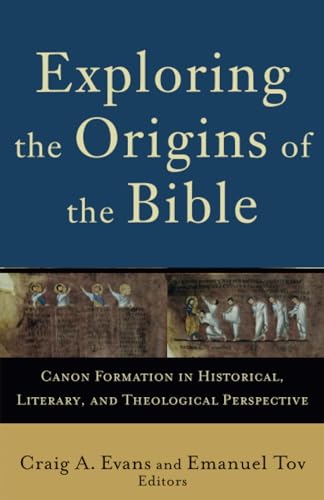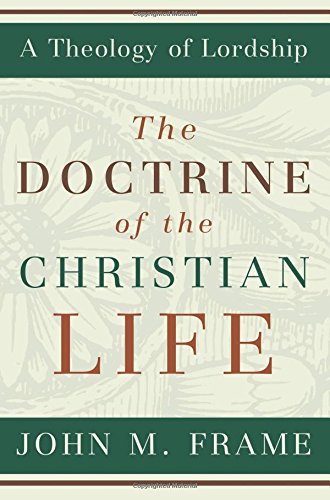An Old Testament Theology: An Exegetical, Canonical, and Thematic Approach
Written by Bruce Waltke, with Charles Yu Reviewed By Rodrigo de SousaAn Old Testament Theology has as its starting point the conviction that the OT is at its core a revelation of the nature and character of God and his living and intricate relationship with history. Therefore, while being through and through a biblical theology in that it focuses on redemptive history, it never loses its primary focus on theology as such, that is, in the self-disclosure of God found in the OT.
The approach is historical and chronological, with special emphasis on rhetorical criticism. The book contains three main sections. Part One is the Introduction, which runs for about 140 pages. In this helpful section, Waltke provides an overview of the field, describing the basis, task, and method of OT theology. Though the discussion is not as in-depth as the one found in other books—for instance, Barr’s The Concept of Biblical Theology—it is very good at an introductory level. The major section is Part Two (pp. 173–802). Entitled “Primary History,” it overviews the narrative of God’s self-revelation in history from Genesis to the Historical Books. Part Three (“Other Writings”) is devoted to prophecy, the Psalms, and the Wisdom Books.
Waltke’s book is a refreshing new contribution to the field. As is characteristic with all of Waltke’s work, here we find a perfect blend of solid scholarship, mastery of the biblical languages and text, and thorough knowledge of secondary literature. The book’s primary strength, however, is it unabashedly spiritual and theological focus. Waltke affirms that the objectives of the book are to know God personally, to understand the nature of God’s revelation, to know self, to understand the OT, to understand the NT, and to contribute to spiritual formation. In this reviewer’s opinion, this should be the distinctive hallmarks of evangelical scholarship. Waltke’s own account of the evangelical perspective is balanced and very helpful (cf. p. 77).
Theological students, ministers, and educated lay leaders should benefit greatly from this work. The content is sound and thorough, and the organization of the material is didactic and clear. Paradoxically, the didactic approach of Waltke—much of the material in the book consists of lecture notes compiled and edited by Charles Yu—is the source of the most negative aspects of the book.
This is because Waltke has the tendency to organize neatly much of his material under memorable or schematic headings. For instance, in his account of approaches to the Bible in the Christian world, he provides the following scheme (cf. pp. 73–77): liberal theologians stand above the Bible; neoorthodox theologians stand before the Bible; traditionalists place traditions/confessions alongside the Bible; fundamentalists stand on the Bible; and evangelicals stand under the Bible. While this is certainly helpful as a mnemonic device to map out positions, it also sweeps too broadly across the field. Of course, since the book is geared toward students one cannot expect discussions that are too deep. As it is, the book already runs well over a thousand pages. But if Waltke’s theology is to be praised for its display of what is best in evangelical theology—the combination of high-level scholarship and piety—the reader should also be warned that it can also at times be charged with the most serious problem of evangelical thought, namely, the frequent “oversimplification” of issues and discussions that are extremely complex. This problem is particularly felt in the presentation of narrative theology and its general guiding principles.
In this connection, one needs to mention Waltke’s organization of all the biblical material under the heading “The Gift of.…” The titles of all the chapters in Parts Two and Three are written with this formula: “The Gift of the Cosmos,” “The Gift of Liturgy,” “The Gift of True Strength: 1 Samuel,” “The Gift of Hymns and the Messiah: The Psalms,” etc.
The criticisms leveled above should in no way discourage the reading of the book. This is the result of a lifetime of research and teaching by one of the most important OT scholars in the evangelical world. This in itself is sufficient reason for purchasing it. Those who are familiar with Waltke’s scholarship will not be disappointed. The theological insights in this book are fundamental for the construction of a biblical theology that is sound, thoroughly evangelical, and vital for theological reflection and practical action. In this regard, special mention is to be made of the discussion of the theme of the Land as it overflows into the NT and Christian theology (pp. 558–87). This section provides important guidelines for Christians who want to be biblically informed on this timely issue. Overall, Waltke’s tour de force is essential reading for all who desire a closer relationship with the OT and the God revealed therein.
Rodrigo de Sousa
Cambridge
Other Articles in this Issue
We begin with a question of translation. Many translations place a period after the word “conviction” in 1 Thess 1:5: “in power and in the Holy Spirit and with full conviction...
The Inexhaustible Fountain of All Good Things: Union with Christ in Calvin on Ephesians
by Lee GatissJuly 10, 2009 was the 500th birthday of the acclaimed French Reformer John Calvin...
The name of Martin Luther is perpetually linked to the doctrine of justification by faith alone...
Of the many questions currently surrounding the discussion about justification, the relationship between justification and spiritual fruit merits attention...
Every year a few students ask me my thoughts about whether they should pursue doctoral studies and I respond with what has come to be known as ‘The Speech...







